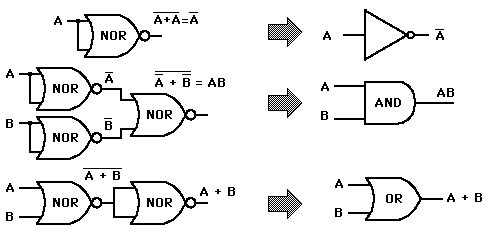
conjunction
- (used in negative phrases, especially after neither, to introduce the second member in a series, or any subsequent member): Neither he nor I will be there. They won’t wait for you, nor for me, nor for anybody.
- (used to continue the force of a negative, as not, no, never, etc., occurring in a preceding clause): He left and I never saw him again, nor did I regret it.
- (used after an affirmative clause, or as a continuative, in the sense of and not): They are happy, nor need we worry.
- Older Use. than.
- Archaic. (used without a preceding neither, the negative force of which is understood): He nor I was there.
- Archaic. (used instead of neither as correlative to a following nor): Nor he nor I was there.
noun
- a Boolean operator that returns a positive result when both operands are negative.
- north.
- northern.
- Norman.
- North.
- Northern.
- Norway.
- Norwegian.
- a combining form used in the names of chemical compounds which are the normal or parent forms of the compound denoted by the base words: l-norepinephrine.
conjunction, preposition (coordinating)
- neither … nor (used to join alternatives) and notneither measles nor mumps
- (foll by an auxiliary verb or have, do, or be used as main verbs) (and) not … eitherthey weren’t talented — nor were they particularly funny
- dialect thanbetter nor me
- poetic neithernor wind nor rain
combining form
- indicating that a chemical compound is derived from a specified compound by removal of a group or groupsnoradrenaline
- indicating that a chemical compound is a normal isomer of a specified compound
conj.c.1300, contraction of Middle English nauther (see neither). Influenced in form by or. pref.
- A precursor compound that differs from its successor by the absence of a radical group, usually methyl:norepinephrine.
see hide nor hair; neither fish nor fowl; neither here nor there; rhyme or reason (neither rhyme nor reason).
 Liberal Dictionary English Dictionary
Liberal Dictionary English Dictionary